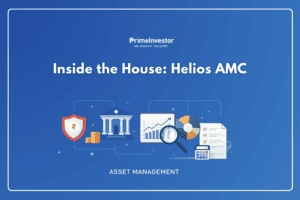Axis Mutual Fund issued a public notice removing and replacing two of its fund managers, Viresh Joshi and Deepak Agarwal, from seven of its schemes — Banking, Technology, Consumption, and Nifty ETFs and Axis Value, Quant and Arbitrage Funds. This move was accompanied by speculation that the managers were suspended on front-running charges. Axis Mutual Fund hasn’t explicitly mentioned front-running charges, but it has confirmed that it has been investigating “potential irregularities” with the help of external advisors.
Many of you have written to us asking whether we will be revisiting our calls on Axis AMC’s funds.

At this stage, we do not have enough information to take a call on the allegations and therefore their impact on the funds. Save for the rumours, we have little clarity on the stocks involved in the front-running, the period over which it happened, or the extent of it. The AMC has taken steps to address the wrongdoing by removing the personnel and fund manager involved, having also earlier started an investigation on the issue. SEBI is also doing its own investigation.
Accordingly, we have so far been responding to your queries by asking you to hold the Axis funds you have invested in, until we got a better grip on what is at stake. This call was based on the funds’ outperformance (where we have buys in the MF Review tool or in Prime Funds) and that none of these funds had their managers involved in the front-running issue, apart from the lack of clear information. Further, we wanted to watch how redemptions panned out in these funds and if this affected performance. To this end, we have observed both redemptions and performance and find nothing particularly alarming.
However, we also know that markets and investors seldom wait for clarity. Speculation on stocks (in the fund’s portfolios) that may have been subject to front-running activities or a run on the funds, especially the smaller ones, can cause damage. If the allegations are established, this can get more serious.
Therefore, after much debate and deliberation, we have chalked out the possible outcomes of this incident and made fund-specific decisions based on the risks we see.
There are two scenarios here:
- The allegation is established
- The impact of the allegation and market rumours even before it is established.
Corporate governance issue
We do remain concerned over whether this allegation will turn into a full-fledged corporate governance issue. If the allegation of professional misconduct or unethical business activity is established, the next question is whether the management was in the know of these activities. If this, too, is established, only then, in our view, can this become an AMC-wide corporate governance issue.
In such a case, there would be an across-the-board redemption pressure and an impact on your fund’s NAV as well (although such an impact would not be as bad as it would be in debt funds). This would be the worst-case scenario that can happen to the AMC’s funds. We are not assigning any probability to this given the limited information we have.
Else, it may be restricted to being an activity of unlawful practice by individuals in the firm and suitable action taken by the AMC, fines imposed by SEBI and loopholes plugged. The latter has happened with AMCs and brokerages earlier.
Fallout of speculation as well as establishment of allegations
As of now, therefore, the depth of the issue and fault lines are yet to be explained. But in the meanwhile, where allegations as serious as the one on Axis AMC are afloat, there are multiple events that can damage your holdings even before the issue is resolved. These are outlined below.
#1 Redemption pressure
Funds in the AMCs can face redemption pressure as investor confidence dips. Typically, this issue can be grave with debt funds as we have seen post the IL&FS saga in 2018. But this impact can be less with equity funds as it is not too hard for equity fund managers to liquidate stocks to meet redemptions – save for some illiquid holdings, which is more in the mid and small cap space.
On this risk, our checks haven’t thrown up anything alarming thus far.
The data below will show you that while some of the key Axis funds have certainly lost AUM, it is not widely deviating away from the index performance over this period, at least thus far. In other words, the drop in AUM indicates that a good part of the loss is market-driven – and not the fund having to liquidate its holdings to meet redemptions. In some schemes, such as Axis Small Cap and Axis Growth Opportunities, their cash holding has actually stemmed the fall as well.
#2 Impact cost on illiquid stocks
The above table suggests there has thus far not been any significant run on the money on the equity funds. But even if it were, in our view, the NAV impact from such redemption pressure would be based on the type of fund.
We think that the NAV impact will be lower for equity funds that invest in larger stocks, where liquidity is comfortable. It is the small cap segment where funds may have to settle for far lower prices if they are faced with selling pressure to meet redemptions. A fund trying to heavily sell its holdings in smaller stocks where liquidity is low will hurt – as stock prices are driven lower due to the fund’s persistent selling. Fund returns, therefore, take a hit.
The table below shows that Axis schemes’ equity exposure to the small cap segment is high – obviously - only in the small cap fund. It is somewhat marginal in the multi cap fund.
An important point to understand here is that the same stock may be easy to liquidate for one AMC while difficult for another. This is to do with the quantum of their holdings. In small cap funds with low AUM, the scheme may take only 3 days (just to illustrate) to liquidate its entire holdings in a stock. In a scheme with high AUM, it may take even 30 days before a fund is able to entirely liquidate the same.
This is among the downsides of small cap funds having a high AUM, even if they deliver well - the issue of deployment and exit poses challenges in times such as these. In the small cap category schemes from HDFC, Nippon India, DSP, SBI and Axis hold some stocks where it can take the fund several weeks to liquidate, given their relatively larger AUM.
Axis Smallcap has this risk at this point in time. What may come to its rescue is the high cash holdings of 20% as of April 2022. While there is speculation that the fund has liquidated holdings, we find that the cash holding has been high since March 2022 (for some of its other funds too) – but then, this is in line with its market strategy of going into cash during correction. The fund has shifted to high cash holdings of similar or even higher levels in earlier years as well, when markets were peaking. This cash holding may help make any redemptions without having a distress sale on its stocks.
#3 NAV hit from stock fall
There have been several rumours doing the rounds on stocks that were possibly subject to front-running by the Axis fund managers concerned. These stocks, especially in the small-cap segment, can be hit hard as a result. The risk is further compounded by the market meltdown that we are facing currently. In markets like these, it is small cap stocks that bear the brunt of the correction. And oftentimes, some find it hard to make a comeback when liquidity dries up.
Assuming that even quality stocks fall in this market-wide correction, small cap funds that may deploy fresh money to average those stocks, to eventually help returns. However, if we assume that funds like Axis Small Cap may wish to hold on to cash to provide for any redemption pressures, there is a risk that they may lose out on such averaging opportunities. When a recovery happens, the missed averaging opportunities can hurt returns compared to other small-cap funds.
#4 Poor inflows
What could otherwise help buying into opportunities in this market correction are fresh inflows. However, with the allegations and the market being uncharitable, Axis funds may find it difficult to get significant inflows.
This can again impact small cap funds the most, as small caps fall the steepest in market corrections and fresh deployment of money at lower levels is necessary to help a faster bounce back.
At this juncture, we do worry that Axis Smallcap, despite its sound performance as well as excellent downside containment measures, can undergo this treatment. In such a scenario, it can lag peers when a market rally happens post correction. We are less worried about such an impact in the large-cap biased funds we have a call on in the AMC.
Our call on the funds
As stated at the beginning, we have not assigned any probability to the allegations ballooning into a full-fledged corporate governance issue. If it does, we will certainly have to worry about Axis AMC (and also about practices in other AMCs as well). At that point, we will take a call on both the AMC’s debt funds and equity funds.
For now, we are concerned only with the equity funds. We are basing our decision on two key risks – one, the impact cost of smaller stocks being hit due to speculation, market corrections and redemptions. Two, a comparative performance dip as the fund is unable to deploy fresh investments at cheaper markets.
Accordingly, we are making the following changes to our recommendations:
- We are recommending an exit on Axis Smallcap, which is part of Prime Funds. This is primarily to avoid any risk of hits in small cap stocks and redemption pressures and to lock in the current strong returns. We continue to consider this to be a consistent fund with excellent ability to take cash calls to contain downsides. We find nothing wrong with its performance itself. So, if this fund remains unharmed, please don’t be surprised if we move it to a buy. You can move your money from exiting this fund into any of our Prime funds Equity - Aggressive category funds. We do not think a switch from one equity to other warrants averaging. You can read more on how you should invest when you switch funds here. But if this current market spooks you, then average in 3-4 tranches on falls or use short SIPs of 3-6 months and not more.
- We are moving Axis Midcap to a hold. Here again, our portfolio analysis suggests that the fund may not suffer any issue with poor stock liquidity. We are doing this more on a cautious note given that a run can be pretty fast in these segments. If the situation doesn’t deteriorate into a full-fledged corporate governance issue, we may move this to a buy. Until such time, it is our view that you can hold existing investments. Please note that this fund is not part of Prime Funds.
- We are moving Axis Flexicap to a hold. There are marginal performance concerns creeping into this fund. The AUM fall is also higher than the NAV fall and this can pose fresh performance challenges. Continue to hold existing investments, if any. Please note that this fund is not part of Prime Funds.
- In our High Growth Prime Portfolio, we are replacing Axis Smallcap with another small cap fund. You will receive the alert on this if you have chosen the ‘follow’ option of the High Growth portfolio. You can also check the portfolio here.
- For all other funds, our calls remain as they were and nothing has changed. Please check the MF Review tool for our calls.
As investors, some of you have written to us with concern about a ‘free fall’ in Axis funds. This is not correct. A fall has to be compared in relation to the market. On this count, we do not find the present fall in Axis funds alarming. But things can change dynamically in a bear market, a factor that has gone into our decision-making above.
We are deeply concerned about how the issue will transpire. But we do have to take a call between not causing excessive churn and taxation in your portfolio versus reducing any possible erosion in wealth, in an already-falling market. Hence, this calibrated approach.
But for those of you who have high exposure to the AMC (say over 20% of your portfolio) and are worried about what can happen next, it is best to reduce your Axis holdings in favour of index funds or even to cash for some time. Please note this is a call you may take for your own peace of mind 😊 Our recommendations factor in only the facts available thus far, present performance and fund flow patterns alone.
P.S.: Following the flurry of comments and questions on this call, we have given a further explanation of our stance on the Axis fund calls here.







19 thoughts on “What to do with your Axis mutual funds?”
Bold call, but seems to be based on logic and conviction, and that’s what we are looking for from our Advisors. Exiting Axis Small Cap is going to be a tough decision to make though. Not too many great options left in the small cap space. The alternate suggested by you: Nippon Small Cap is at Rs. 19000 crores AUM – huge. I would prefer smaller AUM funds here. What is your take on Canara Robeco Small Cap Fund. It has performed quite well, but doesn’t feature on your shortlist.
Please refer to the MF Review Tool for our calls on funds. – thanks, Bhavana
Frankly, I’m little appalled by your call “exit on Axis Smallcap”. You are not a weathercock are you? You are an analyst. There has to be some gravity in your analysis. Yes, as an analyst you run risk of being told “why you did not warn us”, so warn if you need to. An exit call now is so premature as to promote flip-flopping. If anything Franklin debacle has proved that investors got fair returns on investments, albeit with protracted wait. I think you must have qualified who needs to exit and who does not rather than promote a scare among concerned investors. Do your job and your job is not scaremongering.
Hello Sir, thanks for your feedback. We have responded here:https://www.primeinvestor.in/our-response-on-our-axis-fund-call/ thanks, Vidya
Thanks for the above article. In future, how does Prime investor do risk management while selecting AMC and recommending funds for subscribers? We have ithought advisory as an good example. who have detected above case very early and avoid recommending specific funds from AMC. Please comment
Hello Sir, We have explained in the article link given here on what are the risks that we can pre-empt and what we cannot and what we do. I am not sure if anybody can find out front running cases ahead unless they themselves know about it in person 🙂 (in jest) Please also read this article https://www.primeinvestor.in/our-response-on-our-axis-fund-call/ thanks, Vidya
I am invested in Axis Long Term Equity ELSS Fund for last 2 years. This fund’s NAV fell most 4.25% on the day when Fund House Front Running saga was out. What could be the reason for so much fall in just 1 day?
AUM fell marginally higher than market fall. Please see the table where we have given the fall in AUM versus NAV fall versus index fall. thanks, Vidya
Thanks for your time, Vidya, for this heads-up. During the past few years, Axis mutual funds saw heavy inflows as their investment strategies worked in their favor. They have been the investors’ darlings. In other words, Axis funds have high popularity risk now, like the Parag Parikh Flexi Cap Fund. Lately, the ‘growth’ investment strategy isn’t working out for Axis MF and on top of that, this scandal has created a faux pas for the AMC. However, these are all part and parcel of equity investment. Retail investors should be better off with index funds if they can’t stomach these minor setbacks. As a matter of fact, they should wait and watch for a while before jumping to a conclusion about their investments in Axis MF, given the amazing track record of the AMC. Frequent churning of the portfolio could be counterproductive sometimes, in my opinion.
Hello Sir, Thanks for sharing your views. Yes, it is true index funds are better for those who cannot take this. But where I would like to differ is that one can stomach market volatility but not wilful acts of fraud 🙂 That is not part and parcel of mutual fund investing and one should not even make such assumption and accept it 🙂 thanks, Vidya
Vidya, I am afraid that your analysis is half-hearted. It seems you want to stay aloof when it comes to risk.
Franklin was an incident that was unfortunate to happen to debt funds in the MF industry. Prime Investor panicked and told investors to redeem even from equity funds. Are the equity funds not performing well? The funds in question with Axis MF is between 0.01% and 0.04% of the industry assets. We have seen issues with banks, corporates, etc. and the same will continue in future. Will there not be any problem with other AMCs in future? Can the regulator guarantee that all issues with AMCs be monitored stringently to ensure that no issues would arise in future? If we are scared of such risks, then retail investors should not be investing in Mutual Funds.
Please post crisp articles and give a clear message that is helpful to investors at large instead of scaring them.
Hello Sir, Thanks for your feedback. Our response is given here: https://www.primeinvestor.in/our-response-on-our-axis-fund-call/ thanks, Vidya
Typically how long do investigations take? When can one expect more clarity to appear on the matter? I understand you won’t be able to give much insight into it but basis any previous incidents, how long does it typically take for investigations to take?
Such investigations have taken several months to several years. So it is anybody’s guess, I am afraid! thanks, Vidya
On the High Growth Portfolio changes, you have suggested moving from HDFC Smallcap to SBI Smallcap (Apr,2020), then to invest in Axis smallcap (Sep, 2020) and then to a complete exit on HDFC small cap (Apr 2022) and now exit from Axis Smallcap(May,2022) as well. Given that you advocate a long term investing on equity MFs, how do you expect investors going by your recommendations to hold and/or run SIPs like this when you have so many changes in a span of 2 years ?
First, we advocate long term definitely but not always buy and hold. We have even written about this here https://www.primeinvestor.in/is-buy-and-hold-a-sound-strategy-for-mfs/ 🙂 Buy and hold is very difficult with small and midcap funds and we have explained why in the article link I have given. Coming to the portfolio, Yes HDFC Smallcap was done for reasons of performance and large AUM, SBI Smallcap – they closed inflows and then restricted it…we couldn’t help it 🙂 It is still in our recommended list. Third Axis, we did not expect this corporate governance issue to happen. The fund’s performance is sound and we have acknowledged it. So let us know what else we could have done 🙂 The mutual fund world is complex, isn’t it? 🙂 thanks, Vidya
Dear Vidya,
Very nice and timely article. All points very well explained.
It is indeed very disappointing to have such incidents in the MF industry especially after the Franklin incident not so long ago. People talk about the highly regulated MF industry etc, but in reality it doen’t appear so. Anyway nothing much we as retail investor can do about it. It was not expected from Axis AMC, they prided on running quality funds.
Please keep your paid channel aloof and don’t mix it with this. It seems you are hell bent on want of paid subscribers. FREE is always a rat- trap.
Hello Sir, THis is premium article and I am not sure what the issue is. Content is and will always be a marketing tool for digital platforms like ours and some article will be free. All key ones with recommendations are premium. I don’t think you need to worry about traps in a regulated entity like ours. thanks, Vidya
Comments are closed.